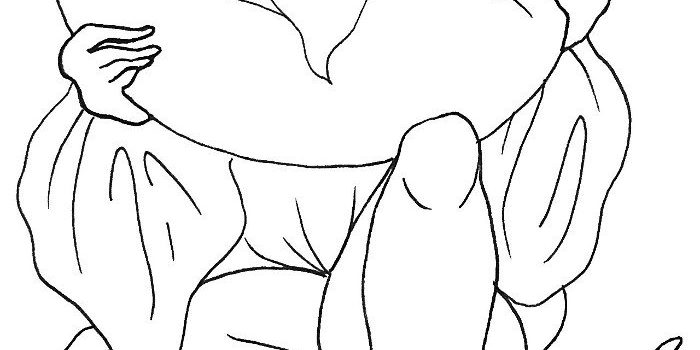by Caille Millner (Originally published in The Halloween Review)
I foresaw a death shortly after my 12th birthday.
At the time, I had no idea what I was seeing. I woke up screaming in the early hours. Gasping for air, windmilling bedsheets with my fists. My mother came running into my room. She gripped my arms until I was able to speak.
I blathered through the specifics of my nightmare — an unknown baby had been slaughtered, despite my best efforts to prevent it. She listened. I could sense but not see her brow furrowing in the darkness.
“What’s it mean,” I asked her.
“Someone is going to die.”
Her voice was sad, but it was steady. My mother had grown up in central Louisiana before she came to California. By the time she was my age she had already picked cotton to support her family, searched through woodlands to find herbs for her mother’s homemade remedies, learned how to feed herself when there was no food to be found. I had grown up in Silicon Valley. A sous-vide of STEM classes, technological wizardry, analytic thinking. There were things she knew that would remain forever outside my understanding.
Her hand stroked my arm in the night. Dread settled over me like a cold blanket.
In the days to come I bargained with whatever God or spirit had made me the vessel for this prognosis. I had nothing to offer, I harangued the heavens. Except, maybe, the physical changes that had begun with startling suddenness and without my permission. While I looked forward to independent adulthood with impatience, the bodily aspects of womanhood I’d observed — blood and pain and esoteric emotional suffering — held little appeal. I’d be happy to trade back a year of puberty if it bought another year of life for the death-marked unknown. I lifted my eyes and offered this proposition to the sky.
It was rejected. Within two weeks my mother received word that her aunt, Eva, had died. Eva had come to California as part of the Great Migration; my mother had lived with her during the final years of her childhood. She was devastated by the news of her death.
I could say her death shouldn’t have been a shock. Eva was nearing 80 years old. She had already survived strokes, diabetes, high blood pressure, discrimination, ancestral and individual displacement, financial setbacks, betrayals.
Yet I could also say that was why her death was a shock — because she had already survived strokes, diabetes, high blood pressure, discrimination, ancestral and individual displacement, financial setbacks, betrayals. She hadn’t been ill before she died. She’d been getting up every morning to care for her garden, feed her animals, cook the elaborate Creole dishes that disappeared along with the women of her generation. My mother never said another word to me about my dream, but then, she didn’t have to.
At Eva’s memorial, I sat catatonically silent in the family pew. On all sides, I was surrounded by my great-aunt’s descendants. They were women who were indomitable in their own ways, but since none of them had conquered Eva’s constellation of challenges, none could know if they had her strength of character. They urged me to view her body in the casket.
Legs shaking, I walked down the aisle. When I gazed inside, I was relieved to find that the body did not belong to Eva.
She had never looked like that, I thought. That was not her hair, her mouth, her skin color. The death-marked unknown had taken her place.
I turned away from the casket with dry eyes. To this day I do not know who was haunting us during the strange several weeks of my vision, my bargain, and Eva’s death. Was it Eva? Or was it me?
